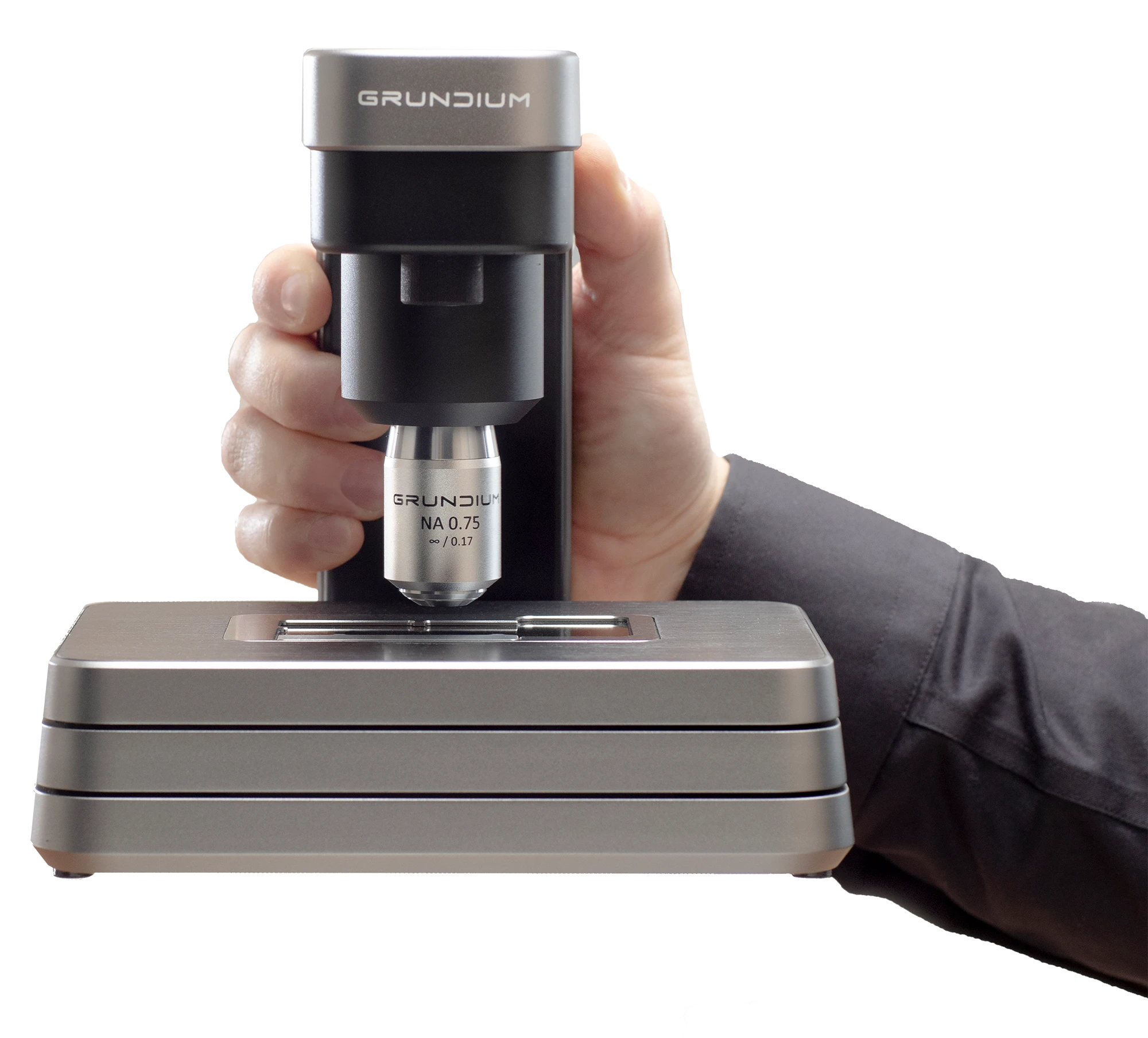digital pathology scanners redefined
The Grundium Ocus® microscope scanners are exceptionally small in size and weight, and their patented imaging system takes incredibly sharp and clear images. Power it up, connect it to the internet and you're ready to start scanning. The user interface is browser-based and no proprietary software is needed, which means you can use it with almost any computer you already have – just a modern browser is needed. No processing power from the used device is required, as all the processing is done on the scanner's onboard computer.
The scanned images can be exported and shared instantly in most common digital pathology file formats in multiple ways. The Ocus® scanners also function as slide servers, thanks to the internal storage space and the capability to set up secure remote access.
WHOLE SLIDE SCANNERS OR DIGITAL MICROSCOPE SCANNERS?
A whole slide scanner and a digital microscope scanner refer to the same device, offering advanced capabilities beyond conventional microscopy. These scanners enable the digitization of entire microscope slides, providing high-resolution images that can be viewed, analyzed, and shared digitally. Unlike traditional microscopy, they eliminate the need for physical slides and allow for remote access to slides and collaboration among researchers. With improved efficiency, precise image capturing, and the ability to store and retrieve vast amounts of data, whole slide and digital microscope scanners revolutionize the field of microscopy, facilitating research, education, and diagnostic processes.









